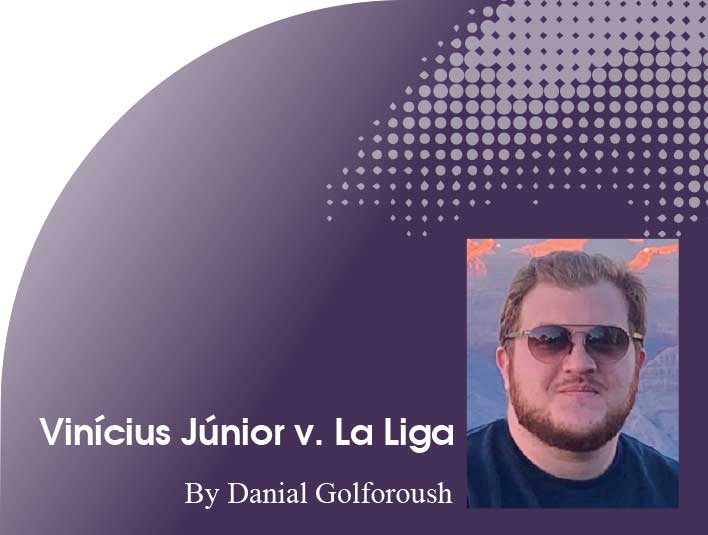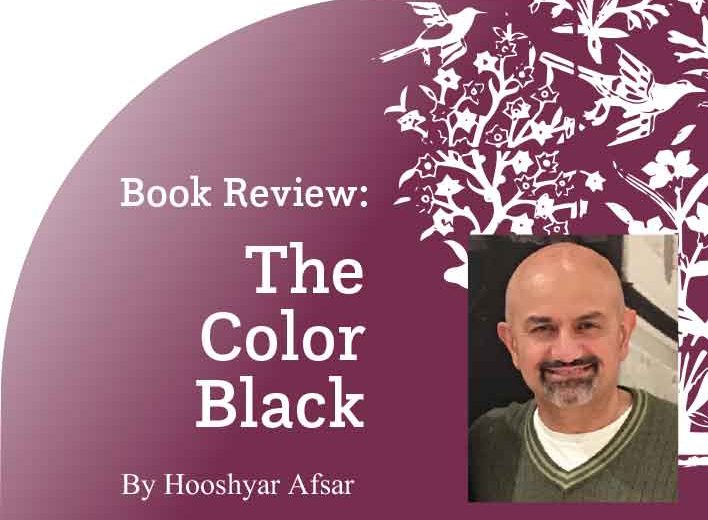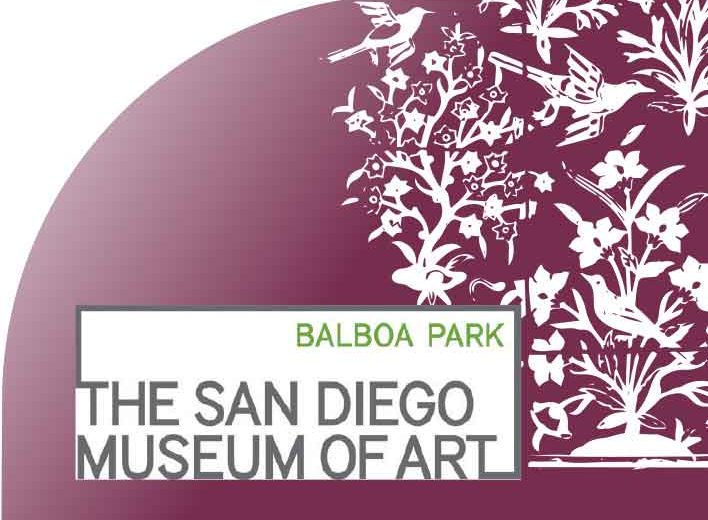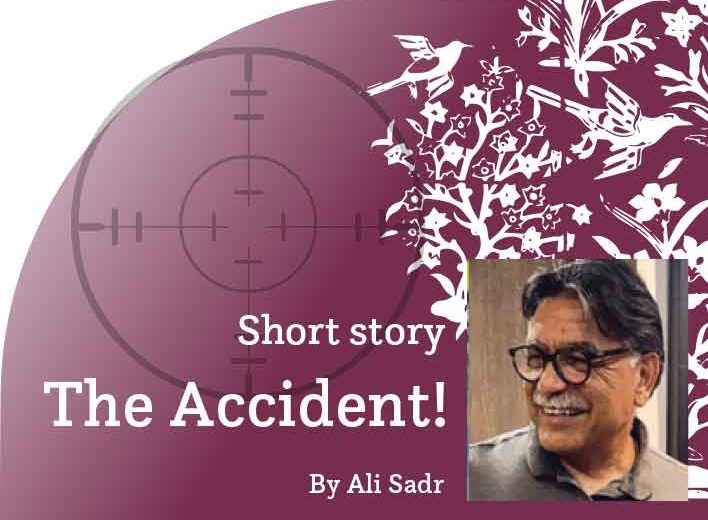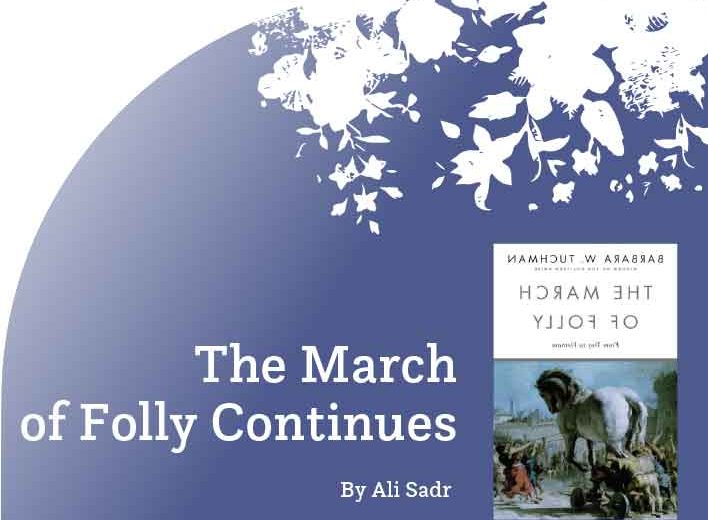Vinícius Júnior v. La Liga:
Arrests Made and Apology Issued
By Danial Golforoush
In case news of the racist remarks that Real Madrid’s superstar—Vinícius José Paixão de Oliveira Júnior, aka Vinícius Júnior or Vini Jr.—endured did not reach you, you may have noticed that players across leagues began matches either by kneeling down or sitting down. These gestures were all to highlight the heightened racist activities and remarks made during a match in Spain. A fan in the stands disgracefully had shouted racial slurs, specifically “monkey, monkey,” at the young Brazilian player. Shockingly, this was not an isolated incident, as Vinícius Júnior faced a barrage of racist insults throughout the game. It’s an appalling reflection of the dark underbelly that still exists within some sections of football fandom.
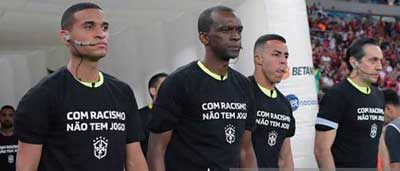
May 2023’s Valencia v. Real Madrid Match
In a dramatic turn of events during the La Liga (professional Spanish league) match between Valencia and Real Madrid on Sunday, May 21, Vinícius Júnior drew attention from the referee as he pointed towards the stands at Mestalla Stadium in Valencia. Approaching the area, Vinícius Júnior engaged in a heated exchange with Valencia fans, resulting in a chaotic scene with players from both teams joining the confrontation. Real Madrid’s coach, Carlo Ancelotti, had to intervene and convince Vinícius Júnior to continue playing, as he contemplated leaving the match. After a delay of approximately 10 minutes, the game resumed, but tension escalated further in stoppage time. A physical altercation erupted among the players, characterized by pushing and shoving. Referee Ricardo de Burgos Bengoetxea reviewed the incident on the pitch-side monitor and identified Vinícius Júnior, Valencia goalkeeper Giorgi Mamardashvili, and Valencia substitute Hugo Duro as the main participants. Replays revealed Mamardashvili placing Vinícius Júnior in a headlock, while Vinícius Júnior retaliated by pushing Duro in the face. Initially, both Vinícius Júnior and Mamardashvili received yellow cards, but after reviewing the footage, the referee changed his decision and showed Vinícius Júnior a straight red card, marking the first red card of his career. Mamardashvili’s punishment remained unchanged. As Vinícius Júnior exited the field, he provocatively held up two fingers, likely symbolizing Valencia’s potential relegation to the second division. This gesture enraged Valencia players on the bench, leading to further delays and commotion.
The Initial Aftermath
Expressing his dismay, Coach Ancelotti criticized the situation, deeming it unacceptable that an entire stadium resorted to chanting racist slurs. Real Madrid, deeming the incident a “hate crime,” lodged a complaint with the Spanish State Attorney General’s Office. Valencia received a partial stadium ban for five matches and a €45,000 fine, a punishment the club described as “totally disproportionate,” with plans to appeal the decision. Meanwhile, Valencia’s head coach, Rubén Baraja, vowed to fight against the accusations.
Taking matters into his own hands, Vinícius Júnior took to Instagram to vent his frustration, highlighting that racism has been a persistent problem for him throughout the league and the season. In a poignant post, he shared a video compilation showcasing the racist abuse he has been subjected to. Vinícius Júnior emphatically stated that these incidents are not isolated occurrences and called for stronger measures to hold individuals accountable, including implementing sporting penalties for clubs involved. He also questioned why the identities of these racists remain concealed and urged sponsors and television networks to take a proactive stance against such behavior. It is abundantly clear that mere press releases will not suffice in combating this grave issue.
Even Brazil’s president, Luiz Inácio Lula da Silva, expressed his solidarity with Vinícius Júnior, stressing that racism should have no place in football stadiums. As a symbol of support, the lights at Rio de Janeiro’s iconic Christ the Redeemer statue were switched off.

La Liga’s Response and Subsequent Action
In a shocking turn of events, the president of La Liga, Javier Tebas, took the liberty of responding directly to Vinícius Júnior on Twitter, where he stated: “Before you criticize and insult La Liga, you need to inform yourself well, Vini Jr. Don’t let yourself be manipulated.” This post drew significant criticism for not directly addressing the issue at hand. The La Liga chief has since expressed regret for his comments.
Speaking to ESPN Brazil, Tebas clarified his intention, stating, “I believe that the message and the intention I had were not understood by a significant number of people, especially in Brazil. I did not mean to attack Vinícius, but if that’s how most people perceived it, I need to apologize. It was not my intention, and I expressed myself poorly at a bad time.” Tebas defended La Liga’s approach, particularly regarding Vinícius Júnior, adding, “If I have hurt someone, if they thought I was racist, it’s far from the truth. I regret what happened, and that’s why we reported it. And we didn’t just report it; we took special actions during his games. We spoke to the clubs to ensure increased security and the identification of fans. La Liga is looking after Vinícius. If there was a misunderstanding, I apologize.”
La Liga has started taking a firm stance on this matter. It is now formally requesting the authority to administer sanctions against those responsible for racist behavior within Spanish football. Currently, its role is limited to reporting incidents to the Spanish football federation (RFEF) or regional prosecutors, a process deemed insufficient by many. Luis Rubiales, the head of the RFEF, acknowledged the existence of a racism problem in Spain. He emphasized the necessity of recognition and improvement, highlighting that even a single fan or group engaging in racist acts tarnishes the reputation of teams, fans, clubs, and the entire nation. Rubiales did not shy away from criticizing La Liga President Tebas for engaging in a social media exchange with Vinícius Júnior instead of addressing the core issue at hand.
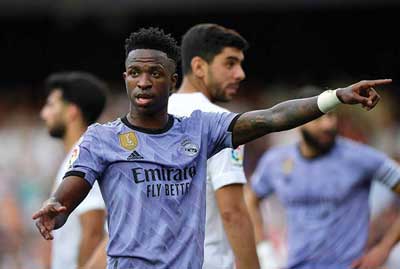
Spanish Authorities Now Taking a Role
Since the May 21 match, seven individuals have been apprehended by Spanish authorities for their involvement in racist abuse directed at Vinícius Júnior, news which has sent shockwaves through the sporting community. Three individuals were arrested for hurling racist insults at Vinícius Júnior during the Valencia match itself. Separately, four individuals were taken into custody for hanging an effigy of Vinícius Júnior from a bridge in Spain’s capital, Madrid, earlier this year, near the Real Madrid training center. The perpetrators suspended a dummy dressed in Vinícius Júnior’s jersey, complete with his name and number, alongside a provocative banner that read, “Madrid hates Real.” The sheer audacity of such an act is simply beyond belief. According to a police statement, three of the four individuals taken into custody for this effigy incident are associated with a radical fan group connected to a local Madrid football club. The police conducted an extensive investigation, utilizing evidence, witness testimonies, and digital research to identify the four suspects. Both incidents are being treated as hate crimes, highlighting the severity of the offenses.
The issue of racism in football has garnered widespread attention, with England manager Gareth Southgate calling for stricter punishments since his team nearly walked off the field due to racial abuse during a match in Bulgaria in 2019. Southgate stated: “It is a disgusting situation. I think it is so bad that it looks like it is going to force change. I am hoping there will be something positive to come from it.”
The incidents involving Vinícius Júnior have shed light on the urgent need to address racism in football. It is crucial that authorities, leagues, and clubs work together to implement stricter measures and sanctions to eradicate this deeply ingrained problem. Only through collective action can the sport ensure a safe and inclusive environment for all players, irrespective of their race or ethnicity.

